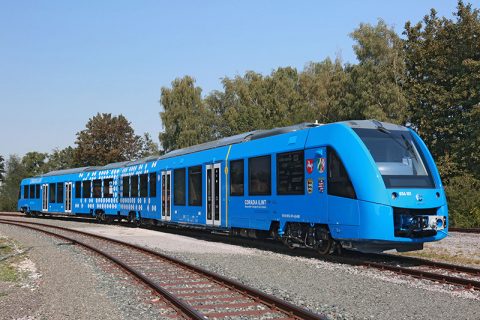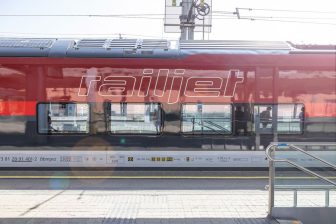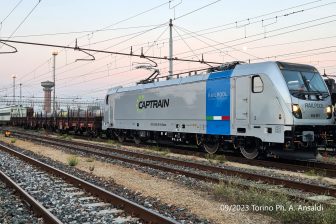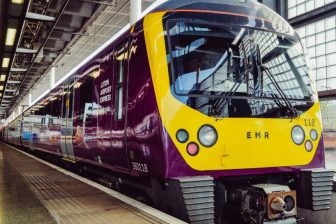
Alstom: no problems with delivery of hydrogen-powered train
Alstom is ‘fully capable’ of delivering hydrogen-powered trains in time to the German state of North Rhine-Westphalia. It is also able to provide maintenance. The train manufacturer said this in response to an announcement made by transportation authority Verkehrsverbund Rhein-Ruhr (VRR) that it will stop the collaborative effort of developing hydrogen-powered trains with Alstom.
According to VRR Alstom ‘can not comply with the provisions of the letter of intent’. According to VRR, the two main preconditions were that Alstom could deliver the trains and maintain them for 25 years. The train manufacturer confirms that the project has been stopped, but ‘categorically denies that it was canceled due to alleged problems with delivery and maintenance’.
Sustainability
Despite the fact that the project is being shut down in North Rhine-Westphalia, VRR wants to continue to make rail transportation more durable and sustainable. The transport authority is going to start a new tender, which other manufacturers can apply to. “We have learned from the bottlenecks and challenges of the first tender and are starting a new award procedure, to push forward with creating more sustainable rail transportation,” says VRR. These sustainable trains are going to start running in 2025 on the route between Essen and Borken.
Alstom also signed a contract with the German state of Lower Saxony in November 2017 to build fourteen hydrogen trains. This contract is ‘in no way influenced by this development’ and the company is still conducting ‘very productive negotiations with other German customers’, according to Alstom. The trains will carry passengers between Cuxhaven, Bremerhaven, Bremervörde and Buxtehude from December 2021.
Letter of intent
The projects in Lower Saxony and North Rhine-Westphalia derive from intention agreements signed at InnoTrans in 2014. These agreements stated that Alstom would develop hydrogen trains for several German authorities. The so-called iLint is based on the diesel train Coradia Lint, a train for regional transport. It was agreed that half of the construction of the trains was to be financed by Alstom. The rest of the required amount came from the federal states and the German government.
A letter of intent and tender are two separate processes, explains a spokesperson for Alstom. “A declaration of intent is not binding, but it is an official document that says ‘we would like’ to go for a bid. The four letters of intent were signed in 2014, at a time when no tender was officially opened.”
Plans
Alstom is continuing its plans for the development of hydrogen trains in other parts of Europe despite this setback. In addition to the project in Lower Saxony, Alstom announced this week that it is going to work with the British rolling stock operating company Eversholt Rail to convert electric trains into hydrogen trains. Test trains will run in the Netherlands this summer.



